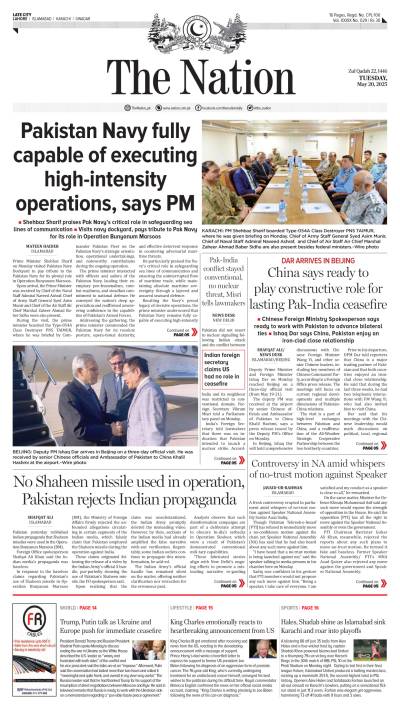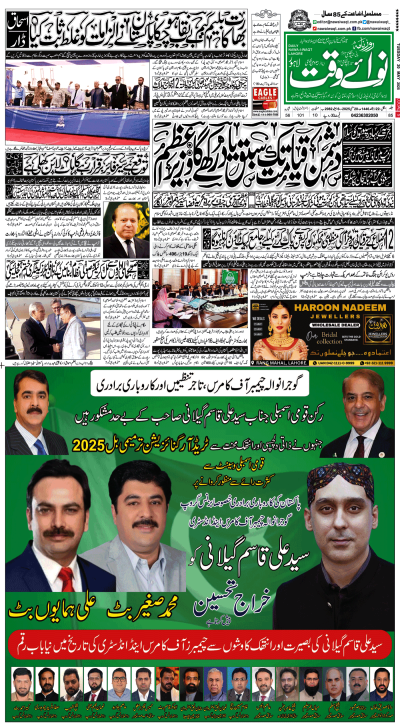Pakistan’s decision to grant $5 million worth of food for distribution in Rohingya camps in Indonesia, Malaysia and Thailand, smacks of blatant hypocrisy and vile opportunism. For a state whose paradoxical creation played its part in the alienation of the very community it seeks to use for populist stunts, the government, and opinion makers, seem to be hell bent on ignoring the country's past and the present. This helps them shamelessly use the Rohingya Muslims – victims of barefaced ethnic cleansing – to sketch out a “world against us” picture that fuels Islamo-fascist jingoism that beefs up vote banks and TV ratings.
A state that is overseeing ethnic cleansing in its largest province in the name of a military operation, acquiescing to genocide against a Muslim sect by forming political alliances with the perpetrators and sanctioning the apartheid against another sect through the Constitution, has no grounds to play the saviour card when another community is being persecuted thousands of kilometres away. What further magnifies the sardonic façade is the state’s obliviousness to its own historic contribution to the plight of the community it is ostensibly clamouring to safeguard as a part of an obnoxious photo op.
When the Muslims of the ‘Muslim majority’ regions of the Indian subcontinent were instigating a separatist movement for the creation of a ‘Muslim homeland’ in the 1940s, the Rohingya Muslims had organised a separatist movement of their own. With the Treaty of Versailles in 1919 acknowledging the right to self-determination for every community around the globe, and new borders being carved out in Western colonies post World War II, the Rohingya Muslims had the political right to seek independence or merger with any other state on common national or ideological grounds. Hence, Rohingya Muslims sought the incorporation of the Mayu region in West Burma into East Pakistan.
Muhammad Ali Jinnah’s refusal to accommodate the Rohingya Muslims in a country ostensibly created as a ‘Muslim homeland’, turned the members of Arakan Muslim League towards jihadism and a radical fight for self-determination – a struggle that continues till this very day. The attitude of the founding fathers of Pakistan towards Rohingya Muslims mirrored their stance towards the Muslims that they were leaving behind in India.
For a movement apparently designed to counter Hindu dominance over Muslims, the Pakistan movement failed to identify its self-contradiction by creating a separate Muslim state in Muslim-majority areas, which in turn further exacerbated the ‘Hindu Raj’ over Muslims that were left back in Hindu-majority areas – who, as it turned out, outnumbered the Muslims in this newly formed state. Clearly the fabricators of the Two Nation Theory didn’t consider the Muslims of the Hindu-majority provinces and probably hadn’t even heard of Rohingya Muslims.
Had All India Muslim League championed the case of its Arakan counterpart, the political struggle for a Muslim homeland in Burma would not have metamorphosed into militant radicalism. That metamorphosis of the late 1940s and 1950s created a stereotype for Rohingya Muslims as “terrorists”, despite the fact that they were as much freedom fighters as any other post-World War II nation. Furthermore, while radicalism had penetrated the community half a century ago, the ‘Rohingya mujahideen’ are now a fringe minority in west Myanmar.
After paying no heed to a Muslim separatist movement in Arakan in 1947, Pakistan’s next contribution towards exacerbating the plight of the Rohingyas was through Operation Searchlight that led to genocide and genocidal rape in East Pakistan to quell Bengali self-determination. This led to a mass migration from East Pakistan into Burma, allowing the Rakhine monks to use the pretext of “demographical change” to force the Burmese government into mass Muslim expulsion. After a decade of hunger strikes and radical Budhist propaganda, Burma stripped the Rohingyas of citizenship in 1982.
With Pakistan no way near acknowledging the Bangladeshi genocide, and federal ministers like Ch Nisar grieving over the execution of 1971 war criminals like Abdul Qadir Mulla, one doesn’t expect the state to realise its historical contribution to the Rohingya persecution. What one can, however, hope for is the realisation to creep into the mainstream, that there are few global acts of condemnation more duplicitous than Pakistan’s denunciation of human rights abuse in Palestine or Myanmar.
From the 1948 annexation of Balochistan, to the 1974 Second Amendment to excommunicate the Ahmadiya community, Pakistan’s role in occupying regions and fuelling bigotry against communities is second to none. The government would do well to focus its energy on its own alienated communities before floating shallow promises across proverbial seas in support of other estranged people.
In fact, if the government of Pakistan is so concerned about the tragic state of the Rohingya Muslims, maybe it should start with facilitating its own Rohingya population in Karachi, some of whom fled Pakistan’s own military abuses in Bangladesh to seek refuge wherever it could be found.
Despite having lived in Pakistan for decades, after radical Buddhists began their anti-Muslim movement in Burma, the Rohingyas in Pakistan either don’t have an identity card or are registered as ‘Bengalis’. Ironically, this is precisely what the Myanmar government is doing to the Rohingyas: forcing them to register as Bengalis - hence coercing them into relinquishing their status as inhabitants of Burma since the 15th century - or simply refusing to acknowledge their existence.
Pakistani government has historically been blessed with double-talkers under the guise of politicians. But it is while championing human rights that they trace the nadir of two-facedness.






